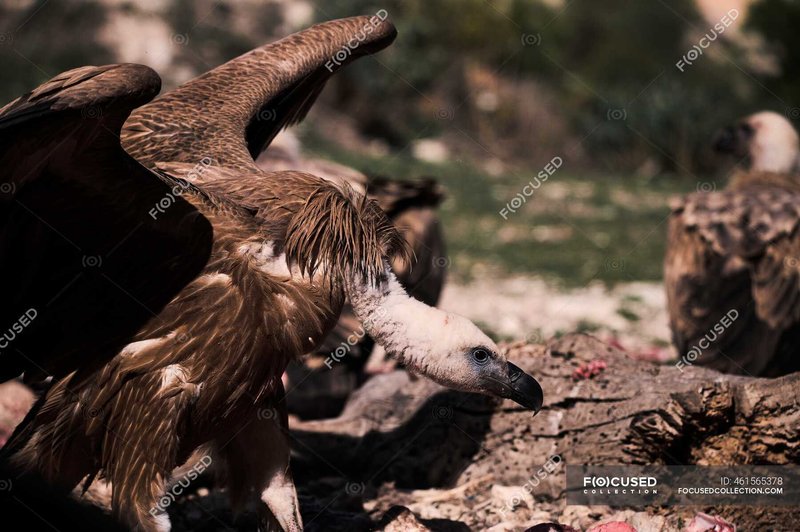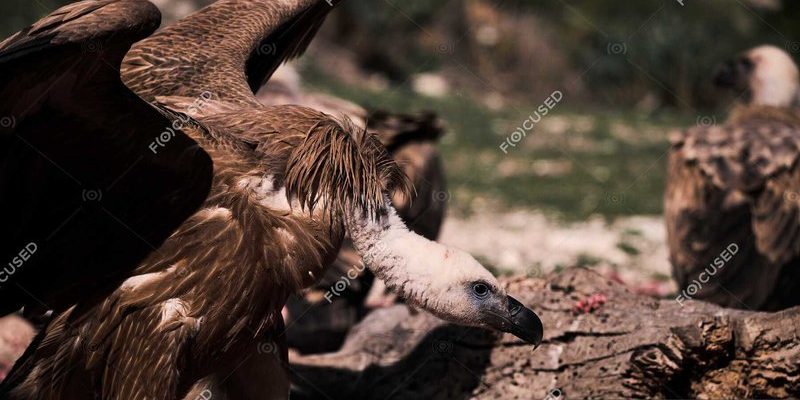
These majestic birds serve a critical purpose by scavenging on carcasses, making them natural recyclers in their environment. Without them, ecosystems would face significant challenges. Let’s dive into the world of the Griffon Vulture and explore how it contributes to a balanced ecosystem, all while enjoying the wonder of nature along the way.
What is the Griffon Vulture?
The Griffon Vulture, also known scientifically as *Gyps fulvus*, is one of the largest birds in Europe, with wings that can span up to nine feet! These birds are recognizable by their broad wings, tawny feathers, and distinctive neck ruff. You might spot them perched on cliffs or soaring high in the sky, searching for food. They prefer open landscapes, like mountains and plains, where they can keep an eye out for their next meal.
These vultures are primarily found in regions like Southern Europe, North Africa, and parts of Asia. They typically live in colonies, which helps them spot food more efficiently. Imagine a group of friends spotting a delicious meal from afar—they work together to find food, just like these vultures do. Besides their size and community behavior, their keen eyesight is a remarkable feature. They can spot a carcass from miles away!
The Importance of Scavenging
You might be wondering why vultures are so crucial to the ecosystem. The answer lies in their diet. Griffon Vultures primarily feed on dead animals, also known as carrion. By consuming these carcasses, they play a vital role in preventing the spread of diseases that could arise if dead animals were left to decay.
Think of it like nature’s waste management service. When an animal dies, its body can attract vermin that carry diseases. However, vultures swoop in and eat these remains, keeping the environment clean and healthy for other wildlife. This scavenging behavior helps maintain the balance in the ecosystem by recycling nutrients back into the soil. In a way, they’re nature’s cleanup crew—working tirelessly, day in and day out.
Contributing to Biodiversity
Biodiversity is essential for a robust ecosystem, and the Griffon Vulture plays a significant role in supporting it. By feeding on carrion, these vultures help create a habitat that supports various other species. When vultures consume dead animals, they leave behind bones and leftover material that contribute to the soil’s nutrients. This process ultimately supports plant life and, in turn, the animals that depend on those plants.
Here’s the interesting part: when vultures are present in an ecosystem, they help ensure a balanced food web. Different species, whether plants or animals, rely on each other for survival. Without vultures, the removal of dead matter would fall to other scavengers like foxes or raccoons, which may not provide the same level of cleanup. These shifts can lead to overpopulation of certain species, harming biodiversity.
Indicators of Environmental Health
The presence of Griffon Vultures also serves as an ecological indicator. Their population numbers and health can tell us a lot about the state of the environment. If these vultures thrive, it typically means the habitat is healthy and supports plenty of food sources. Conversely, if their numbers decline, it could signal underlying issues.
Consider this: vultures are sensitive to changes in their environment, like pollution or habitat destruction. If they struggle to find carrion or face threats from human activity, it’s a warning sign for the ecosystem. Monitoring their populations can help conservationists take action before problems escalate, making them vital players in environmental stewardship.
Threats to the Griffon Vulture
Unfortunately, the Griffon Vulture faces several threats that jeopardize its survival. Habitat loss due to urbanization, agriculture, and deforestation reduces their nesting and foraging areas. Moreover, poisoning—intended for pest control—can inadvertently harm vultures who feed on the carcasses of affected animals.
Another major issue is the decline in available food sources. As agriculture evolves and livestock management changes, vultures struggle to find carrion. This not only affects their diets but also impacts the entire ecosystem they help maintain. Just as a team member in a sports game is crucial for the overall success of the team, vultures are essential for ecological balance.
Conservation Efforts
There are ongoing efforts to protect the Griffon Vulture and ensure their populations remain stable. Many organizations work to secure their habitats and promote awareness of their ecological importance. For example, initiatives aimed at creating safe feeding sites and reducing poisoning risks have helped some populations recover.
You can support these conservation efforts by spreading awareness about the role of vultures in the ecosystem. Educating others on the vital work these birds do can foster appreciation and respect for wildlife. It’s crucial to remember that every creature plays a part in the larger web of life, and protecting the Griffon Vulture means protecting our environment.
How You Can Help
If you’re passionate about helping the Griffon Vulture, there are simple ways to get involved. Here are a few ideas:
- Support Conservation Organizations: Look for groups that focus on raptor and vulture conservation. Donations or volunteering can make a big difference.
- Reduce Pesticide Use: If you live in rural areas, consider using less pesticide in your gardens and farms. This helps protect not only vultures but other wildlife too.
- Spread the Word: Share what you learn about Griffon Vultures with friends and family. The more awareness we create, the better chance these birds have.
By taking these steps, you can play a part in ensuring the survival of these remarkable birds and the ecological balance they help maintain.
In conclusion, the Griffon Vulture is much more than just a scavenger; it’s an invaluable component of our ecosystem. By understanding their role and the challenges they face, we can appreciate the complex relationships within nature. So, the next time you see a vulture soaring high above, remember their crucial work, and take a moment to celebrate this magnificent bird that helps keep our environment healthy and balanced.

